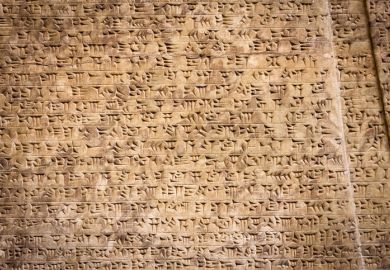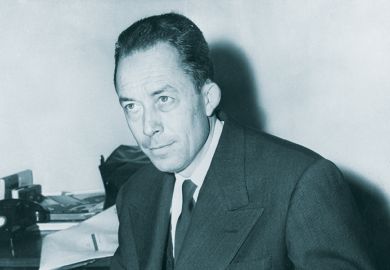My father, like so many Welshmen of his generation, once worked in the Welsh collieries. Later he became a teacher, but the experience of mining stayed with him, and over the years his stories and the socialist ideals he picked up became romanticised in my head. When I went to university (in England), I gained street cred from occasionally letting drop, proudly, the fact that my dad had worked underground.
Only when I reported the 1984 miners’ strike as a young journalist did I glimpse the reality of the mines: the harshness of life underground and in the mining communities — the drinking, the fighting, the boredom, the black humour and the limited options for everyone. I understood my parents’ drive for education, to give us choices not open to them.
Four of these five novels by Welsh writers, originally published decades ago and now republished, are about what their series editor, Dai Smith, calls the "working-class, urban industrial experience" in South Wales between 1900 and 1940. The world described in Cwmardy (1937) by Lewis Jones and The Dark Philosophers (1946) by Gwyn Thomas is a brutal one. Underground explosions, the abuse of power (not least male power), violence, striking, drinking — it is not a pretty picture, although Jones, a miner from the age of 12 who led some of the 1930s hunger marches, strives to make it a noble one. Poverty, even the poverty of strikes and soup kitchens, may sometimes make people heroic, but more often it seems to make them behave badly.
In the face of such bleakness, perhaps a secondary theme of one of these novels, Raymond Williams’s Border Country (1960) — the migration out of Wales of Welsh youngsters — is not surprising. Of the five writers republished here, two left Wales for university in England — Gwyn Thomas and Williams himself. His autobiographical novel tells the story of Matthew Price, a university lecturer like Williams, and his railwayman father, Harry, caught up in the General Strike of 1926. When Harry has a stroke, Matthew returns from his London home to the border village where he grew up to learn the values he wants to keep and those he wants to discard from the community of his birth.
Smith, whose career spans BBC broadcasting and academe, currently holds the Raymond Williams chair in cultural history at Swansea University, which has a centre for researching English writing in and about Wales. As a side note, the very existence of such a centre has a political edge in today’s Wales, where the focus in recent years has been on the Welsh language, with Welsh-language schools multiplying and jobs for speakers of "Cymraeg" mushrooming. Indeed, Smith himself, who is writing a biography of Williams, thinks that had they been written in Welsh these five novels would never have been out of print.
Be that as it may. The republication has been paid for by the Welsh Assembly, and there are apparently many more novels to come from the Library of Wales, an initiative designed to bring back into print classic texts about Wales written in English. "[The] Welsh Assembly has decided that if we are going to build a ‘memory bank’ for Welsh citizens we have to have all the information available… the truth told about the Welsh," Smith said in a recent edition of BBC Radio 4’s Start the Week .
The truth? It’s a big claim, but not a wholly misplaced one. These novels, with new prefaces by academics and writers, do cast light on aspects of Welsh experience that have occasionally been overlooked and, more frequently, glamorised. I read Williams’s Border Country 20 years ago but, although I had heard of Thomas, I had not read his terrifyingly grim tales. Jones’s story of underground disasters and strikes, of the battle with the (English) pit owners in Cwmardy, likewise has the ring of authenticity, even if it now feels absurdly propagandist. So Long, Hector Bebb (1970), the tale of a boxer from Cymmer, casts an unsentimental spotlight on the ruthlessness of sport in the valleys.
These four are boys’ books, mostly edited by boys and written by boys, but the fifth novel is by a woman, Country Dance (1932) by Margiad Evans. The light it sheds on the long enmity between the English and the Welsh, an enmity less written about but no less oppressive at times than that between the English and the Irish, is a powerful one. Almost inevitably, the tale is a tragic one.
Jones ends Cwmardy with the Communist anthem, We’ll Keep the Red Flag Flying Here . I heard that song a lot in 1984, belted out in working-men’s halls and on marches. It belongs to a now-vanished era preserved in these novels, which will be as useful to historians and to scholars as they will be to a generation of middle-class Welsh readers such as myself interested in understanding more about the backgrounds not only of their nation but of their families.
Dylan Thomas once infamously said: "Land of my Fathers — my fathers can keep it." The Library of Wales series looks set to help explain that sentiment. I hope its next lot of books carries on telling the truth about industrialised Wales.
Sian Griffiths is education editor of the education pages of The Sunday Times .
Cwmardy and We Live
Author - Lewis Jones
Publisher - Parthian Press www.parthianbooks.co.uk
Pages - 881
Price - £9.99
ISBN - 1 902638 83 2
Register to continue
Why register?
- Registration is free and only takes a moment
- Once registered, you can read 3 articles a month
- Sign up for our newsletter
Subscribe
Or subscribe for unlimited access to:
- Unlimited access to news, views, insights & reviews
- Digital editions
- Digital access to THE’s university and college rankings analysis
Already registered or a current subscriber? Login



